 Goodbye 20th Century: Sonic Youth and the Rise of the Alternative Nation by David Browne
Goodbye 20th Century: Sonic Youth and the Rise of the Alternative Nation by David BrowneMy rating: 3 of 5 stars
Soundtrack Part I ("Taking in the Sun in an Exaltation to You")
Hey, indie music fans, listen to this (start with the first five minutes, the rest is noise, about which more later), while you read the first part of this review:
http://www.youtube.com/watch?v=tdeTQP...
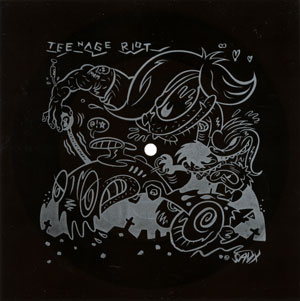
"Looking for a Man with a Focus and a Temper"
This 422 page book is jam packed with information about one of my favourite indie bands, Sonic Youth.
Do I need to know all of these facts about Sonic Youth?
Of course, I do.
Would I like some opinions about them and their music? Some analysis of their musical appeal and their cultural importance? Some reasons to vindicate my 30 year old passion? Of course, I would.
Am I alone in craving opinion and analysis? Maybe.
Would I be just as passionate, if nobody else liked them as much as I do? Of course, I would.
Still, did this book give me the opinions and analysis I craved for? Nuh.
Did it give me just one outrageous opinion? Just a teeny weeny hint of how much David Browne loves the music of Sonic Youth more than the detail of their career trajectory? Perhaps, but I don’t remember it.
David Browne is a man with a focus and no temper.
Am I just going to crank up some Sonic Youth, listen to it through my headphones and not
write a review of this book?
Well, yes, yes, no.

Artist: Justin Hampton
http://www.justinhampton.com/index.html
"Got a Foghorn and a Drum and a Hammer That’s Rockin’"
I can’t read music or play an instrument. I don’t understand the difference between open tunings and standard tunings.
So I’ll try to explain what I thought was happening in Sonic Youth’s music in the only way I can - with words (sorry if I get it wrong).
I assumed that an open tuning was just the guitar strung normally, but no chords were being shaped by fingers being placed on the frets.
Therefore, if the guitar was strummed, it would make no particular chord, so the music it created might be dissonant.
I read everywhere that the music of Sonic Youth was dissonant, sometimes just noise, and I assumed that this was the explanation.
But I was wrong.
An open tuning can be set so that without placing your fingers on any frets, you would play a chord when you strummed all of the open strings.
You are automatically within a chord or key.
This makes it relatively easier to create melodies within that key by using your fingers on the frets.
There is nothing intrinsically dissonant about this approach at all, although it’s possible to set up alternative tunings that just sound unusual or different from what we’re used to.
For me, just trying to understand this was important, because I didn’t regard Sonic Youth’s music as particularly un-melodic.
I detected melodies, light and shade, and I liked it.
Music is a relationship between notes. As Thelonious Monk (and/or Art Tatum) said, there are no bum notes. All notes depend on how you resolve them, how they form a consonance with other notes.
I don’t mean that Sonic Youth are all consonance, just that they’re not all dissonance.
Their music creates a sense of pleasure, even when they utilise dissonance.

"Looking for a Ride to Your Secret Location"
A good example of what I [think I] mean is this live version of "Teenage Riot" from 2005 (the studio version dates from their 1988 album "Daydream Nation"):
Sonic Youth - "Teenage Riot" (Live - Eurockéennes 2005)
http://www.youtube.com/watch?v=tdeTQP...
This is the song from the start of my review. However, here is a second version:
http://www.dailymotion.com/video/x63v...
The first is the full version with an extended feedback instrumental at the end.
The second is just the song without the feedback. It seems to be better synchronized as well.
"Teenage Riot" is not regarded as typical of Sonic Youth’s music. It uses a traditional verse/chorus structure and lacks much of the feedback they normally use in their songs.
However, the extended version of this song has everything.
This version is so amazing, it confirms my suspicion that it is their equivalent of the Rolling Stones’ "Satisfaction" or the Velvet Underground’s "Sweet Jane".
It really is that good a song.
Just observe and enjoy:
• Lee in the left speaker, Thurston in the right (Jim O’Rourke on third guitar in there somewhere as well)
• Lee’s power chords at 1:15 and 1:20
• Steve driving the song the whole way through
• Kim’s frock strap slips off around 1:17
• Kim swaying at 1:30
• Jim O’Rourke on third guitar at 1:40 and 1:50
• Lee letting loose an amazing solo from 2:40 onwards
• Everybody letting loose from 3:53 onwards
• The feedback symphony that starts at 4:50 (in the longer version)
Tabs:
Here are some tabs for this song:
http://www.911tabs.com/link/?3609096
Thurston’s Church Kicker T-shirt:
Here's where you can get a t-shirt like the one Thurston was wearing in that show:
http://evolvefish.com/fish/product306...
Australian Tour:
I saw Sonic Youth play the Enmore Theatre in Sydney on the Australian leg of this tour.
On the flight back to Brisbane the following day, I realised that the band were on the same plane.
I introduced myself to Thurston and Kim, and said how much I enjoyed the show.
Thurston asked me for some advice about bookshops in Brisbane. He was looking for poetry, and I was able to send him off to two shops that might have what he was looking for.
IanHeartKim Dream #9:
Kim looked so hot and smart on the plane, and I promised to email her if they ever broke up as a couple.
Of course, I've been tempted to follow up on my promise, since I learned that they had actually parted company.
I'm older than Thurston, but younger than Kim. I don't know if this matters.
To be honest, I'm afraid I mightn't be brainy enough for her. No other woman has ever fallen for my intellect before, so why would she?
After a lot of cogitation and other big words, I drew a picture of Kim instead and I placed it in a prominent place in my Sonic Youth shrine.
In the meantime, I try to enhance my intellect by reading difficult novels and hanging around anybody on GoodReads who lives in Manhattan or maybe Brooklyn at a pinch (as long as they like Don DeLillo and/or Paul Auster and/or Siri Hustvedt).
I figure they must be really smart, if they can afford the rent.
I hope you like my drawing. You're the only one I've showed it to.
I'm not very good at fingers, but neither is Matt Groening.
The tits are all right (if you don't mind me paraphrasing Lisa Cholodenko).
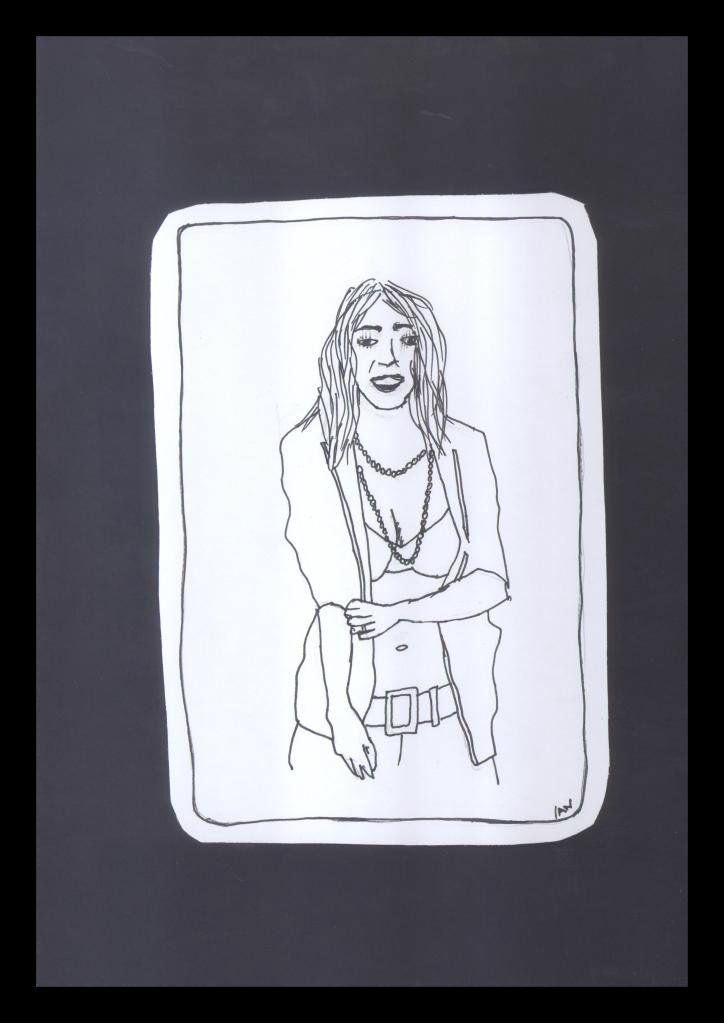
Soundtrack Part II ("You're Perfect in the Way, a Perfect End Today")
OK, now, stop for a moment and watch and listen to this video:
Sonic Youth - "Sugar Kane" (Live - Jools Holland Show '92)
http://www.youtube.com/watch?v=3Hwbhd...
Another classic, also in the vein of "Sweet Jane".
Until finding the live version of "Teenage Riot" on YouTube, I probably would have said this was my favourite Sonic Youth song and possibly one of my top three songs of the nineties.
Lee plays guitar with Steve’s chopsticks at 3:25.
Yeah, OK, that’s dissonance.

Soundtrack Part III ("Time Takes Its Crazy Toll")
One more song for your listening pleasure:
Sonic Youth - "Diamond Sea" (Live)
http://www.youtube.com/watch?v=7x8jpQ...
A more atmospheric use of feedback and effects on a seven minute live version of a song from their 1995 album, "Washing Machine".
The alternative studio versions were 19 and 25 minutes long.

"Everybody’s Sound is Round It"
Apart from their music, the most significant characteristics of Sonic Youth are their longevity and their influence (what David Browne calls their "senior statesman" role).
The band formed in 1981 and existed continuously until at least November, 2011, when Thurston Moore and Kim Gordon broke up their personal relationship, which was as old as the band itself (thirty years).
As at mid-2012, the band is on hiatus, although some members and fans are confident that they’ll reform and release new music within the foreseeable future.
Sonic Youth were a big influence on Kurt Cobain and Nirvana and were instrumental in getting them a deal with DGC Records (David Geffen Company Records) in 1990, only to see them eclipse their commercial success almost immediately with "Nevermind".
The band also kickstarted Beck’s career with Geffen.
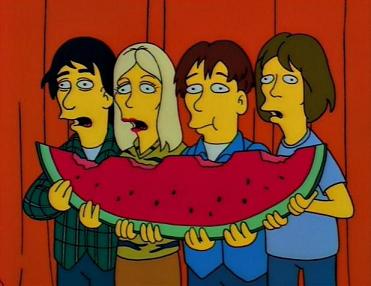
"I Remember Our Youth, Our High Ideals"
Sonic Youth never enjoyed the popularity and commercial success of other bands that joined them under the label "alternative rock" in the early 1990’s.
They almost seemed to be too individualistic to be swept up in the wave that brought some bands a modicum of commercial success.
The band always seemed to be one generation older, one step ahead and one step to the left of their peer group.
It’s ironic that the subtitle of the book is "Sonic Youth and the Rise of the Alternative Nation".
There is no explanation of the term "Alternative Nation" in the book. How widely was it ever used on the street? Was it just a commercial label for a TV show about the music? Does it imply that there was a nation of indie fans within the USA? Why does it sound so restricted to America, instead of reaching out to Canada, the UK, Europe, Japan, Australia and New Zealand?
Whatever the merits of the term, if you didn’t know better, you would assume that Sonic Youth were part of the rise of this Alternative Nation.
However, within the body of the book, it soon becomes clear that the band stood part from the rise, and the rise occurred without them.
Their fortunes stood opposed to the rise of the other bands. They missed out.
They were in the slow lane and they were overtaken.
"You Can Buy Some More and More and More and More"
The book charts the decline in their record sales from a peak of around 300,000 to 70,000 copies by the time of "Rather Ripped".
Of the fans who bought "Dirty", only one in four would buy "Murray Street", "Sonic Nurse", "Rather Ripped" or "The Eternal".
When you speculate on their total record sales and the income they could have generated from sales, you have to question how a band of at least four members could survive financially in Manhattan.
It’s difficult to see how they could have generated enough revenue from playing live and selling merchandising to make a decent living.

"I Hope It Works Out My Way"
Within this financial context, the book has little to trumpet about the success of Sonic Youth.
The main sense of "accomplishment" is the simple fact that they [have] stayed together for so long, despite not making much money.
Most, if not all, other bands would have fallen apart from the financial pressures, especially once band members got married, bought a home and had kids who needed to be raised and educated.
This is the subject that needs to be examined, but isn’t.
"Everybody Wants to be Proud to Choose"
Sonic Youth formed in an era within popular culture when artistic integrity was valued and bands weren’t seen as commodities or brands within a market economy.
To accept an offer from a major label was to "sell out", an accusation that was made against Sonic Youth when they joined David Geffen’s label.
Ultimately, Sonic Youth fought for the right to make their music exactly the way they envisaged it for the whole of their career.
Unlike punk musicians before them, there was an expectation that they could make a living out of their creativity.
Unfortunately, as popular culture and commerce changed around Sonic Youth, fewer and fewer people cared enough about the music the band wanted to make to spend money on acquiring it.
To the extent that any popular culture is an act of communication, they communicated with less and less people.
I don’t want to suggest that they became egotistical or self-absorbed in the pursuit of their musical vision. However, one way or another, the band and their audience went separate ways.
They pushed the envelope and nobody was there to fill it full of cash and return it to the sender.
They asserted their integrity, they exercised their freedom, they made a choice, they were proud of their choice, but their financial return was commensurate with the limits of an audience of their own making.
"Hits Are For Squares"
The name of a recent compilation reveals their attitude to the concept of Hits:
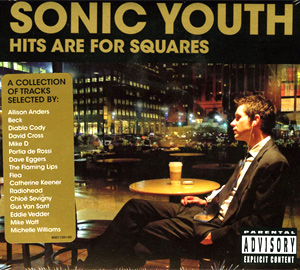
Here is the "Hits Are For Squares" Press Release:
http://www.contactmusic.com/press/son...
Note which artists selected which tracks for the compilation.
Perhaps, Sonic Youth were less interested in the size of their audience than having the right audience.
However, by taking this approach, they took the risk that they might not have the right size audience.
"Where'd You Get Your Light, Your Smilin' Sugar Life?"
It’s arguable that nobody is out there making music like this anymore, that fans too have changed in what they are seeking, that they are less patient with labels like “Alternative Music” or “Alternative Nation” and the implied attempts to build sub-cultures around a taste or a genre.
If anything, fans, consumers, just see these terms as marketing labels.
Sonic Youth also came from a generation that was equally comfortable producing or consuming music, art, photography, film, literature, fashion. They were polymorphous in their interests. They were true Renaissance men and women.
However, it’s questionable whether the marketing machine that attempts to drive sales of today’s cultural commodities can handle such polymorphism, at least until, like Lady Gaga, an artist reaches a pinnacle of success that allows them to diversify.
The only hope is that this type of independent artist will find an audience intuitively on the internet.
David Browne hints, without actually saying it, that Sonic Youth are some kind of role model for a different way of making music.
Part of me wants to agree with him, but then part of me believes that he is being too sentimental.
Because music is such a physically demanding activity (unlike for example writing), there is a real risk that being in a band will continue to be something that people do in their youth and end up moving on to a “real job”.
Only the very lucky (not necessarily the very talented) will make enough money from their creativity to sustain a lifestyle for the rest of their lives.
Most, if they’re any good at all, will shine brightly for a moment in time, or perhaps a few moments, but few will enjoy a "smilin’ sugar life".
I’m just grateful that Sonic Youth shone so brightly for as long as they did, and that the best minds of my generation were not destroyed by madness (or drugs).
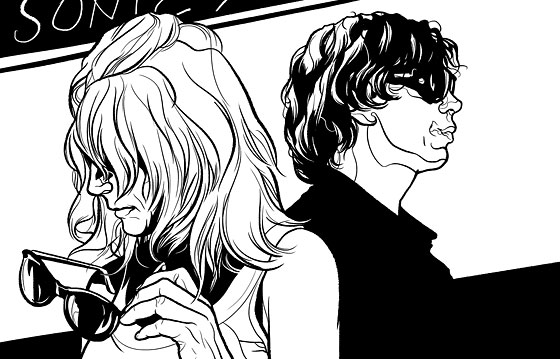
"You're Perfect in the Way, a Perfect End Today"
View all my reviews
No comments:
Post a Comment